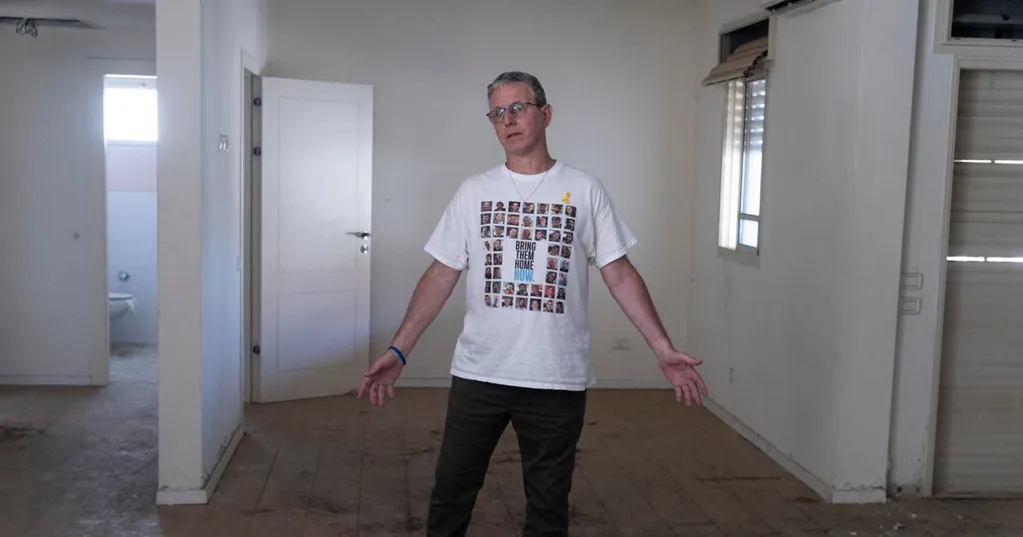Jerusalem -- Early on the morning of Oct. 7, 2023, Ohad Ben Ami heard the alarm go off in his community of Kibbutz Be'eri. He and his wife ran into their home's safe room, where they quickly realized that something unusual was happening.
On his phone, Ben Ami could see that alarms were sounding at other, nearby kibbutzim. There were also reports of airborne attacks. He shut the phone off to avoid panicking.
About 15 minutes later, he heard people outside.
"Then I understand that it is very severe, and it's not only missile attack. It's something much more complicated," Ben Ami said.
He started receiving messages from neighbors who told him that attackers had entered their houses. So he crawled from his safe room to try to secure the doors to his home. Then, he was shot.
As he retreated to his safe room, attackers followed him. They easily opened the door behind him, which was only meant to protect those inside from projectiles or flames and could not be locked.
When they entered, Ben Ami's wife was hidden, so Ben Ami told them he was alone.
"I was sure I'm going to be dead," he said.
But unlike many of his neighbors that day at Kibbutz Be'eri, Ben Ami wasn’t killed. Loaded into the back seat of a car, he was taken to Gaza, where he would spend 491 days in captivity.
During his time as a hostage, Ben Ami was moved from apartment to apartment. Many did not have running water or functioning toilets.
"The conditions were very, very bad. Very bad. All the time, the IDF [Israeli military] is bombing. So we are very afraid to die from our bombs," Ben Ami said.
Sometimes he was held with other hostages, including -- for a time -- his wife Raz Ben Ami, who had been captured as well. She was freed in the first hostage and prisoner exchange deal between Israel and Hamas later in 2023.
Ben Ami was moved below ground, into the Hamas tunnel network, where he said there was no light, very little food, and the sanitary conditions were extremely poor.
He was put into an area with two other hostages, Elkaha Bohbot and Bar Kuperstein. Three more Israeli captives joined them, but the amount of food they received did not increase.
"All the time, we are hungry. We are very nervous. We try to struggle and to get used to the situation," he said.
The group began to lose weight, trying to divide very limited food among them. But despite the dire conditions, Ben Ami managed to keep going.
"They [Hamas] let us see television 15 minutes once in a month ... so we saw that the people in Israel are fighting for us," he said. "They [Hamas] told us that our government don't want us back. The army, Israeli army, is looking to kill us. The Israeli government won't pay the price. And our families are quiet. But when we saw on the TV that all of Israel go out... this give us hope. Give us a lot of hope to proceed and be strong."
In February this year, Ben Ami was released as part of the last hostage and prisoner exchange deal, but his companions were not.
"When I think of the five of my friends and all the 48 hostages that are still down there, I'm very, very worried for them," Ben Ami said. "I love my country, and I love the people,but our government is disconnected.And until now,I have the feeling of insult.I feel that they abandoned me."
As negotiations are underway in Egypt on a deal that could potentially see the release of all the remaining hostages, Ben Ami says he's hopeful.
"I speak and I talk -- but in my mind, I'm down there. So until they come back, all the 48, I cannot live. I'm still a hostage. I'm a free man,but not in my soul," he said."I ask all the sides to go to the middle and then ... to shake hands and finish it and bring (home) all the hostages.To give our nation the time to recover,and also the Palestinians.They also need to recover from all this thing that happened."
